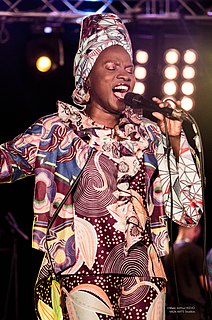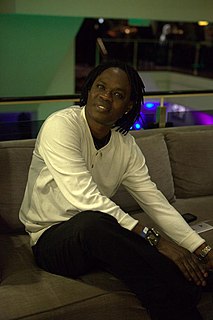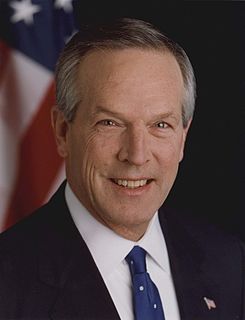A Quote by Jared Diamond
Livestock adopted in Africa were Eurasian species that came in from the north. Africa's long axis, like that of the Americas, is north/south rather than east/west. Those Eurasian domestic mammals spread southward very slowly in Africa, because they had to adapt to different climate zones and different animal diseases.
Related Quotes
Eurasia's main axis is east/west, whereas the main axis of the Americas is north/south. Eurasia's east/west axis meant that species domesticated in one part of Eurasia could easily spread thousands of miles at the same latitude, encountering the same day-length and climate to which they were already adapted.
Podor is a nice town. It's at the north of Senegal near the river. The town faces the other country that is Mauritania. It is a very cultural town, because at the beginning it was closest stop when you come from the Sahara and also when you come from the south to go to the north part of Africa. It was just at the middle, and so it's where a lot of cultures of West Africa come together.
When I was in government, the South African economy was growing at 4.5% - 5%. But then came the global financial crisis of 2008/2009, and so the global economy shrunk. That hit South Africa very hard, because then the export markets shrunk, and that includes China, which has become one of the main trade partners with South Africa. Also, the slowdown in the Chinese economy affected South Africa. The result was that during that whole period, South Africa lost something like a million jobs because of external factors.
In short, Europe’s colonization of Africa had nothing to do with differences between European and African peoples themselves, as white racists assume. Rather, it was due to accidents of geography and biogeography—in particular, to the continents’ different areas, axes, and suites of wild plant and animal species. That is, the different historical trajectories of Africa and Europe stem ultimately from differences in real estate.
We were land-based agrarian people from Africa. We were uprooted from Africa, and we spent 200 years developing our culture as black Americans. And then we left the South. We uprooted ourselves and attempted to transplant this culture to the pavements of the industrialized North. And it was a transplant that did not take. I think if we had stayed in the South, we would have been a stronger people. And because the connection between the South of the 20's, 30's and 40's has been broken, it's very difficult to understand who we are.
Taking the continent as a whole, this religious tension may be responsible for the revival of the commonest racial feeling. Africa is divided into Black and White, and the names that are substituted- Africa south of the Sahara, Africa north of the Sahara- do not manage to hide this latent racism. Here, it is affirmed that White Africa has a thousand-year-old tradition of culture; that she is Mediterranean, that she is a continuation of Europe and that she shares in Graeco-Latin civilization. Black Africa is looked on as a region that is inert, brutal, uncivilized - in a word, savage.
Living here in North America - I have been Americanized. When I go back home now, there are things that I have far less tolerance for in South Africa. We've come such a long way in terms of race relations and the economy as well as people's willingness to move on. There are still a lot of things that are frustrating about being in South Africa.
































